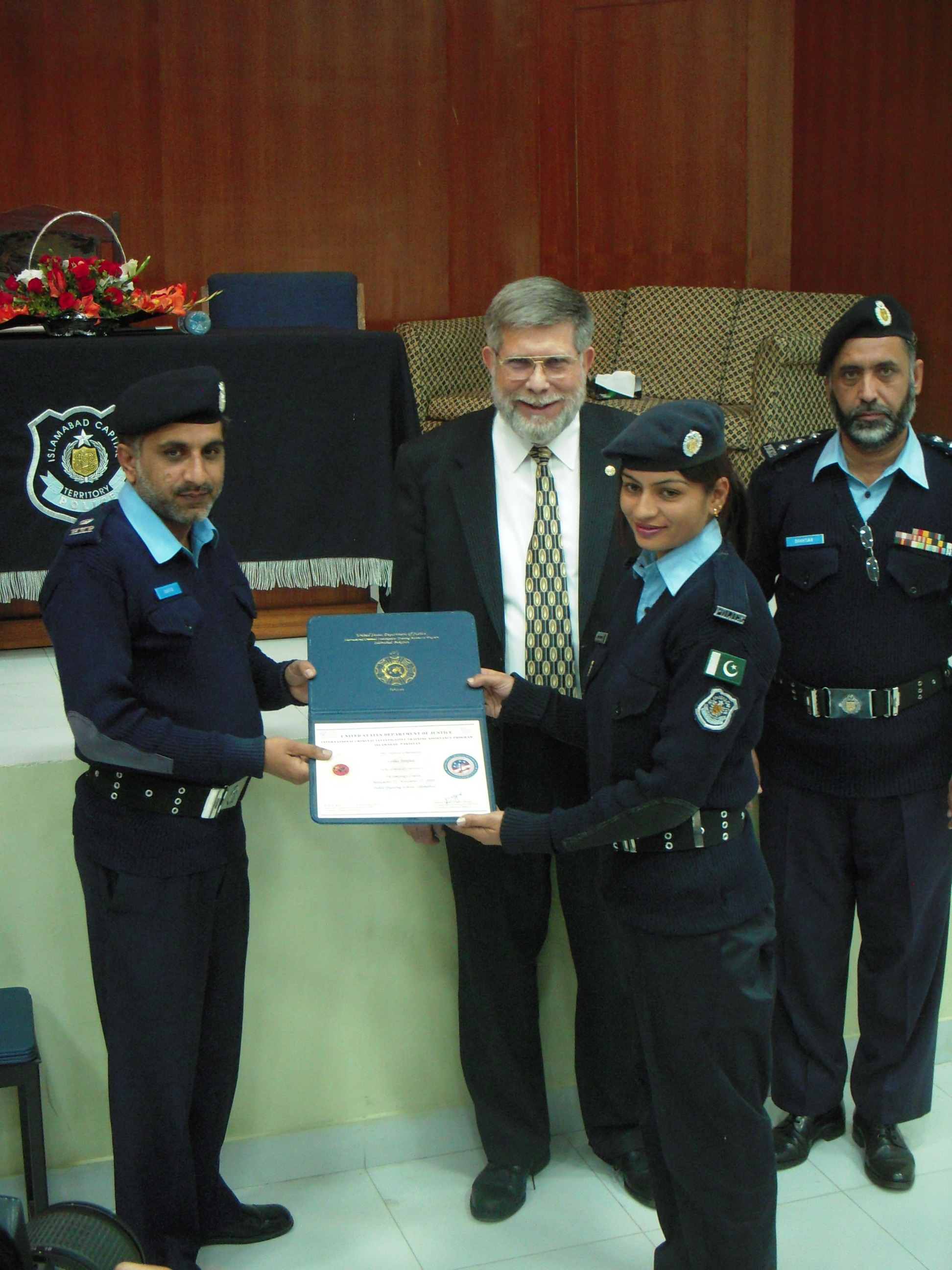EU, UN Women, and Pakistan's Federal Judicial Academy advance gender-responsive policing

September 2, 2025
Supported by the EU-financed Deliver Justice Project, a three-day Training of Trainers (ToT) successfully equipped 27 police instructors, including 18 women and 9 men from Balochistan, Khyber Pakhtunkhwa, and NACTA, with the tools to integrate gender-responsive practices into their work. This training not only standardised gender-based violence (GBV) training and survivor-centered approaches but also reinforced the Federal Judicial Academy (FJA’)s role as a national coordination hub for gender-responsive policing.
Speakers highlighted the systemic importance of this initiative, emphasising that gender-responsive policing cannot stand in isolation but requires cooperation across the justice sector. As noted by UN Women Pakistan’s Deputy Country Representative, the shift must involve police, prosecutors, judiciary, and social services working together to build survivor trust and ensure justice. The EU echoed this commitment, stressing the significance of accessible, inclusive, and gender-responsive service delivery. Leadership from the FJA and judiciary reinforced the need for law enforcement to be properly trained to protect vulnerable groups and uphold pro-women legislation, underscoring the credibility of a justice system rooted in equity and protection.
This training marks an important step toward embedding gender sensitivity into Pakistan’s law enforcement culture. By fostering inter-academy learning and strengthening survivor-centered practices, it builds a stronger foundation for a justice system that responds effectively to GBV and prioritises women’s security.
To read the original story, see here

September 2, 2025
EU, UN Women, and Pakistan's Federal Judicial Academy advance gender-responsive policing

September 2, 2025
Supported by the EU-financed Deliver Justice Project, a three-day Training of Trainers (ToT) successfully equipped 27 police instructors, including 18 women and 9 men from Balochistan, Khyber Pakhtunkhwa, and NACTA, with the tools to integrate gender-responsive practices into their work. This training not only standardised gender-based violence (GBV) training and survivor-centered approaches but also reinforced the Federal Judicial Academy (FJA’)s role as a national coordination hub for gender-responsive policing.
Speakers highlighted the systemic importance of this initiative, emphasising that gender-responsive policing cannot stand in isolation but requires cooperation across the justice sector. As noted by UN Women Pakistan’s Deputy Country Representative, the shift must involve police, prosecutors, judiciary, and social services working together to build survivor trust and ensure justice. The EU echoed this commitment, stressing the significance of accessible, inclusive, and gender-responsive service delivery. Leadership from the FJA and judiciary reinforced the need for law enforcement to be properly trained to protect vulnerable groups and uphold pro-women legislation, underscoring the credibility of a justice system rooted in equity and protection.
This training marks an important step toward embedding gender sensitivity into Pakistan’s law enforcement culture. By fostering inter-academy learning and strengthening survivor-centered practices, it builds a stronger foundation for a justice system that responds effectively to GBV and prioritises women’s security.
To read the original story, see here




